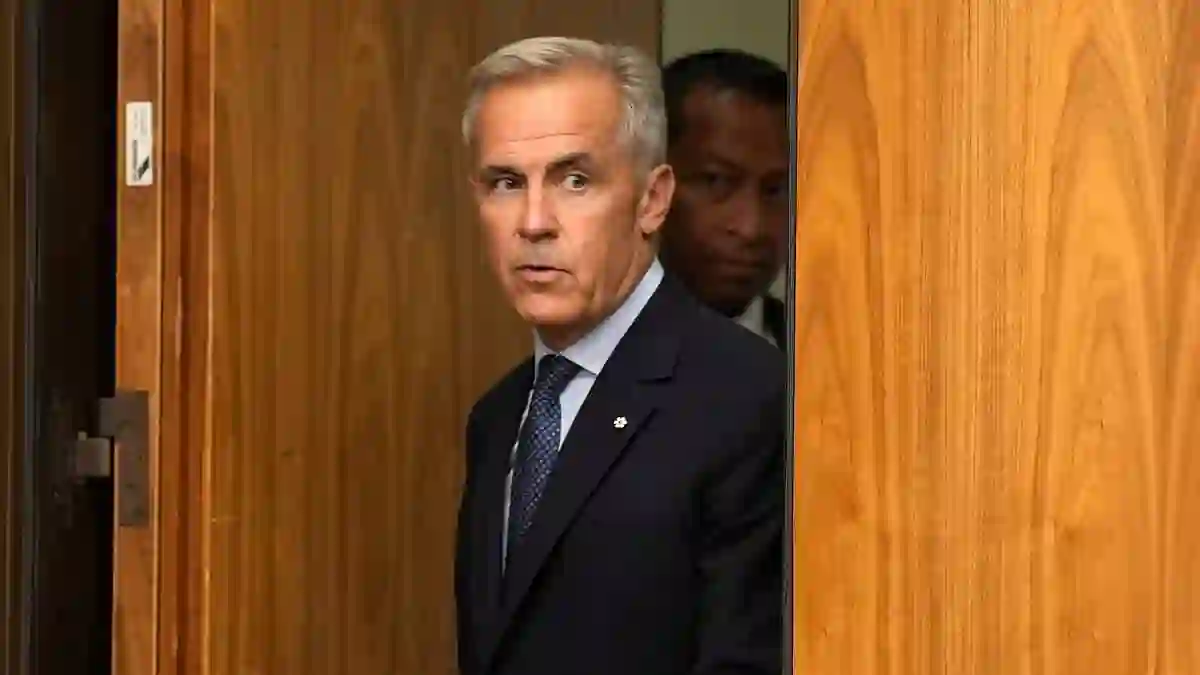As global tensions rise and international sentiment shifts, Canada has decided to take a bold diplomatic step.
Prime Minister Mark Carney announced that Canada will officially recognize the state of Palestine in September—joining a growing list of nations speaking out against the deepening humanitarian crisis in Gaza.
Why Canada Is Making This Move Now
Carney’s announcement came after an emergency Cabinet meeting focused on the deteriorating conditions in Gaza, where food shortages, displacement, and severe blockades have left millions in distress.
The Prime Minister was reportedly influenced by recent conversations with U.K.
Prime Minister Keir Starmer, who just one day earlier revealed similar plans for the United Kingdom.
“The level of human suffering in Gaza is intolerable,” Carney said, pointing to disturbing reports of starvation and hardship under the longstanding Israeli blockade.
For Canada, he explained, this move isn’t just symbolic—it’s about aligning with growing international pressure for a long-term peace process.
What the Recognition Means and When It’s Happening
Canada’s formal recognition of Palestinian statehood is set to be declared during the 80th Session of the United Nations General Assembly this September. But Carney made it clear that this gesture comes with conditions.
He emphasized that Canada’s recognition hinges on a future where:
-
The Palestinian Authority holds democratic elections in 2026
-
Hamas is excluded from governance
-
The Palestinian state is fully demilitarized
A Global Shift Is Underway
More than 140 nations already recognize Palestine—including several in Europe. But when French President Emmanuel Macron announced last week that France would become the first G7 country to do so, it sparked a new wave of momentum.
That announcement by Macron clearly influenced both the U.K. and now Canada, as major Western powers begin signaling a policy realignment toward Israel and the ongoing conflict in Gaza.
These declarations, though largely symbolic for now, are placing real diplomatic pressure on Israel to change course.
U.K. and Canada Align on Next Steps
Carney’s plan mirrors that of British Prime Minister Keir Starmer. Starmer recently said the U.K. will recognize Palestine in September—unless Israel makes significant moves to de-escalate the situation in Gaza.
The U.K.’s list of demands includes:
-
A lasting ceasefire
-
No further annexation in the West Bank
-
A clear commitment to a negotiated two-state solution
Starmer clarified that this recognition doesn’t imply moral equivalence between Israel and Hamas.
He stressed that Hamas must still release all remaining hostages, agree to disarm, accept a ceasefire, and step away from any future governing role in Gaza.
Israel’s Fierce Response to the Recognition Push
Not surprisingly, Israel has pushed back hard. Prime Minister Benjamin Netanyahu condemned Starmer’s announcement, accusing him of rewarding Hamas while punishing Israeli victims.
“A jihadist state on Israel’s border today will threaten Britain tomorrow,” Netanyahu warned.
“Appeasement towards jihadist terrorists always fails. It will fail you too.”
Israel’s Foreign Ministry also criticized the shift, calling it a “reward for Hamas” and a blow to efforts to achieve a ceasefire and secure hostage releases.
What This All Means Going Forward
Canada’s decision, like that of the U.K. and France, adds to mounting international pressure to address the humanitarian crisis in Gaza and push for a meaningful resolution.
Whether these recognitions will bring real change or simply deepen the diplomatic divide remains to be seen—but one thing is clear:
The conversation around Palestine, Israel, and long-term peace is no longer just a regional issue.
It’s becoming a defining global question.
